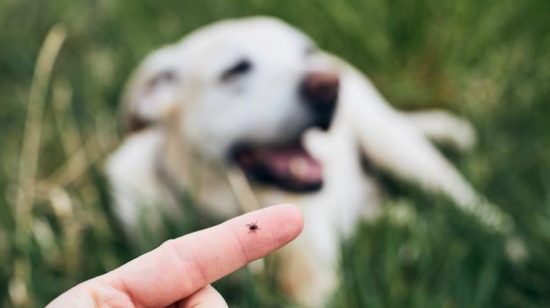Can Dogs Eat Oranges? The Truth About Feeding Oranges to Dogs
Discover if feeding oranges to your furry friend is safe. Get the facts on can dogs eat oranges and learn about suitable fruits for their diet.

Oranges are a popular and healthy fruit for humans, but can dogs eat oranges? Are oranges safe and suitable for your furry friend? If you’ve ever wondered whether it’s okay to share this delicious citrus fruit with your dog, you’re not alone. In this blog, we will explore the truth behind can dogs eat oranges and unravel the mysteries surrounding this juicy fruit.
While oranges can provide some nutritional benefits to dogs, there are also potential risks and considerations to keep in mind. From understanding canine nutrition to the health benefits of oranges, we will dive deep into the topic to give you a comprehensive understanding. So, let’s put any doubts to rest and find out whether dogs can munch on oranges without any worries.
Understanding Canine Nutrition and Fruits
Canine nutrition plays a crucial role in maintaining the overall health and well-being of your furry friend. Providing a balanced and nutritious diet is essential, and fruits can be a valuable addition to their meals. Fruits offer a range of essential vitamins, minerals, and fiber that contribute to their overall health.
Fruits can provide numerous benefits when included in a dog’s diet. They offer a natural source of essential nutrients that support their immune system, promote healthy digestion, and contribute to their overall vitality. Including fruits in your dog’s diet can help diversify their nutrient intake and provide additional hydration.
Nutritional Benefits of Including Fruits Like Oranges
Oranges, in particular, are a nutritious fruit for dogs. They are high in vitamin C, which supports your dog’s immune system, helps with wound healing, and acts as an antioxidant. Oranges also contain other vitamins and minerals, such as potassium, which is essential for proper muscle function, and dietary fiber, which promotes healthy digestion.
While many fruits are beneficial for dogs, there are some fruits that should be avoided due to potential toxicity or other health risks. Some examples include grapes, raisins, cherries, and avocados. These fruits can be toxic to dogs and may cause digestive issues or other complications. It’s important to consult with your veterinarian or do thorough research before introducing new fruits to your dog’s diet.
Health Benefits of Oranges for Dogs
Oranges are not only a delicious fruit for humans, but they can also provide numerous health benefits for dogs. Their nutritional content is rich in vitamins and minerals that can support your furry friend’s overall well-being. Let’s explore the specific benefits that oranges offer:
Nutritional Content of Oranges: Vitamins and Minerals
Oranges are packed with essential vitamins and minerals that are beneficial for dogs. One of the key nutrients found in oranges is vitamin C. Just like in humans, vitamin C plays a vital role in supporting your dog’s immune system. It can help strengthen their immune response and improve their overall health. Oranges also contain other vitamins, such as vitamin A, which is important for vision and cell growth, and vitamin B6, which helps with energy metabolism.
Potential Immune System Support
The high vitamin C content in oranges can provide immune system support for dogs. Vitamin C is an antioxidant that helps protect the cells from damage caused by free radicals. By including oranges in your dog’s diet, you can enhance their immune response and help them fight off infections and diseases more effectively.
Fiber for Digestive Health
In addition to vitamins and minerals, oranges also contain fiber, which plays a crucial role in your dog’s digestive health. Fiber helps regulate bowel movements and prevents constipation. It can also promote a healthy gut microbiome, which is essential for proper digestion and nutrient absorption. Including oranges in your dog’s diet can contribute to their overall digestive well-being.
With their nutritional content, oranges offer a range of health benefits for dogs. From immune system support to digestive health, these citrus fruits can be a valuable addition to your dog’s diet. However, it’s important to keep in mind that moderation is key. While oranges are generally safe for dogs, they should be given as a treat and not as a substitute for a balanced diet. As always, consult with your veterinarian before making any significant changes to your dog’s diet.
Can Dogs Eat Oranges ?
When it comes to feeding any food to dogs, safety is a top priority. So, can dogs eat oranges safely? The answer is generally yes. Oranges are considered safe for dogs to consume, but there are a few precautions to keep in mind to ensure the well-being of your furry friend.
Oranges offer several nutritional benefits for dogs, such as vitamins and minerals, but it’s important to remember that moderation is key. Too much of any food, including oranges, can lead to various health issues for dogs. Additionally, some dogs may have individual sensitivities or allergies to oranges, so it’s essential to observe any adverse reactions.

When introducing oranges to your dog’s diet, it’s recommended to start with small portions and monitor their response. Watch out for any signs of gastrointestinal upset, such as diarrhea or vomiting. If your dog shows any negative reactions, it’s best to discontinue feeding oranges and consult with your veterinarian.
Furthermore, it’s crucial to remove any seeds or peels from the oranges before offering them to your dog. Orange seeds can be a choking hazard and may contain small amounts of toxic substances. Orange peels, on the other hand, can be difficult for dogs to digest and may cause digestive obstruction.
Potential Risks of Feeding Oranges to Dogs
While oranges can offer health benefits to dogs, it’s important to be aware of the potential risks associated with feeding oranges to your furry friend. Understanding these risks will help you make informed decisions about incorporating oranges into your dog’s diet.
Sugar Content and Gastrointestinal Upset
Oranges contain natural sugars, which can be a concern for dogs, especially if consumed in large amounts. The high sugar content in oranges may lead to gastrointestinal upset, including diarrhea or an upset stomach. It is important to monitor your dog’s intake of oranges and ensure moderation to avoid these potential problems.
Obesity and Calories Concerns
Another risk of feeding oranges to dogs is the potential for obesity and weight gain. While oranges are generally low in calories compared to other treats, they still contain calories that can add up if not taken into account. If your dog is already overweight or prone to weight gain, it is essential to consider the calorie content of oranges and adjust their overall diet accordingly.
Diabetes Considerations When Feeding Oranges
Dogs with diabetes require careful management of their diet to ensure stable blood sugar levels. While oranges can provide some nutritional benefits, the natural sugars present in oranges can cause spikes in blood sugar levels. It is crucial to consult with your veterinarian and follow their guidance on incorporating oranges into your diabetic dog’s diet.
Feeding Guidelines: How Much Orange is Safe?
Determining the appropriate amount of orange to feed your dog is crucial for their health and well-being. Feeding guidelines can help you ensure that your dog receives the nutritional benefits of oranges without any adverse effects.
When it comes to portion sizes for dogs, it is important to consider their size and breed. Smaller dogs will require smaller portions, while larger dogs may be able to tolerate larger amounts.
As a general guideline, the safe amount of oranges for dogs is as follows:
| Dog Size | Safe Amount of Oranges |
|---|---|
| Small Breeds (up to 20 lbs) | 1-2 small segments or slices |
| Medium Breeds (20-50 lbs) | 2-4 small segments or slices |
| Large Breeds (50+ lbs) | 4-6 small segments or slices |
It is important to note that these portions are just a general guideline and may vary depending on your dog’s individual needs and tolerance. Always monitor your dog closely when introducing oranges into their diet and consult with your veterinarian for specific recommendations.
Remember to remove any seeds and tough peels before feeding oranges to your dog, as these can pose choking hazards or digestive issues. Additionally, it is recommended to introduce oranges gradually and observe your dog’s reaction to ensure they tolerate the fruit well.
Can Oranges be Bad for Dogs?
While oranges are generally safe for dogs to consume, it’s important to be aware of potential negative effects and practice moderation when feeding them to your furry friend. There are two main factors to consider when it comes to oranges and dogs: the effects of citric acid and natural sugars, and the toxicity of orange seeds.
The Effects of Citric Acid and Natural Sugars
Oranges contain citric acid, which can cause gastrointestinal upset in some dogs, especially if consumed in large amounts. While most dogs can tolerate small amounts of citric acid without any issues, it’s essential to observe your dog’s reaction to oranges and ensure they don’t experience any digestive discomfort or irritation.

The natural sugars present in oranges can also be a concern, particularly for dogs with diabetes or those prone to weight gain. While natural sugars are generally healthier than added sugars, they can still contribute to obesity or spike blood sugar levels in dogs with diabetes. It’s important to monitor your dog’s overall sugar intake and consider their individual dietary needs and health conditions.
Toxicity of Orange Seeds and the Importance of Moderation
Orange seeds can be toxic to dogs if consumed in large quantities. They contain a substance called amygdalin, which can release cyanide when ingested. While it’s unlikely that a dog would consume enough orange seeds to cause serious harm, it’s still crucial to remove all seeds before giving oranges to your dog.
Moderation is key when it comes to feeding oranges to dogs. While oranges offer some health benefits, excessive consumption can lead to digestive upset or an imbalance in their overall diet. It’s recommended to introduce oranges gradually into your dog’s diet and monitor their response to ensure they tolerate it well. As a general guideline, offer oranges as an occasional treat rather than a regular part of their daily meals.
Safe Ways to Introduce Oranges to Your Dog
If you’re considering introducing oranges to your dog’s diet, it’s crucial to do so in a safe and gradual manner. Starting with small portions and observing your dog’s reactions to the citrus flavors is key. By following these tips and guidelines, you can ensure a smooth transition and help your dog develop a positive taste for oranges.
Starting with Small Portions
When introducing oranges to your dog, it’s important to start with small portions. Begin by offering a small slice or a few segments of orange. This allows your dog to get accustomed to the new flavor and texture without overwhelming their digestive system. You can gradually increase the portion size as your dog becomes more comfortable.
Dog Reactions to Citrus Flavors
It’s essential to observe your dog’s reactions to the citrus flavors of oranges. Some dogs may immediately enjoy the taste, while others may exhibit hesitation or disinterest. Monitor your dog’s response and behavior after consuming oranges. If your dog shows signs of gastrointestinal upset, such as vomiting or diarrhea, it’s best to consult with your veterinarian and discontinue feeding oranges for the time being.
Remember that every dog is unique, and their individual tastes and tolerances may vary. Some dogs may love the tangy flavors of oranges, while others may prefer other fruits or treats. It’s important to respect your dog’s preferences and make adjustments accordingly.
Orange Juice and Dogs: A Bad Mix?
While oranges themselves are generally safe for dogs to consume, the same cannot be said for orange juice. Orange juice contains concentrated sugars and acidity that can be harmful to dogs. Feeding orange juice to dogs can have several risks and negative effects on their health. It is important to understand these risks and explore healthier alternatives for keeping your furry friend hydrated.
Concentrated Sugars and Acidity in Orange Juice
Orange juice is known for its high sugar content, which can be harmful to dogs when consumed in excess. The concentrated sugars in orange juice can lead to weight gain, obesity, and even diabetes in dogs. Additionally, the acidity in orange juice can cause gastric upset and digestive disturbances in dogs, leading to discomfort and potential health issues.

Healthy Hydration Alternatives to Citrus Juices
Instead of offering orange juice to your dog, it is advisable to explore healthier hydration alternatives. There are several safe and beneficial options that can keep your dog hydrated without the risks associated with orange juice. Some alternatives include:
- Fresh, clean water: The best and most natural way to hydrate your dog is by providing them with fresh water. Ensure that your dog has access to clean water at all times, especially during hot weather or periods of physical activity.
- Coconut water: Coconut water is a hydrating and refreshing option for dogs. It contains natural electrolytes and minerals that can replenish their fluids and improve hydration.
- Bone broth: Bone broth is a nutritious and hydrating option that provides essential vitamins, minerals, and amino acids. It can be served as a standalone drink or added to your dog’s regular meals.
These healthy hydration alternatives can help ensure that your dog stays properly hydrated without the risks associated with consuming orange juice.
| Hydration Alternatives | Benefits |
|---|---|
| Fresh, clean water | Provides natural hydration and is readily available |
| Coconut water | Contains natural electrolytes for improved hydration |
| Bone broth | Nutritious and hydrating, provides essential vitamins and minerals |
Alternative Healthy Snacks to Oranges
If oranges are not suitable for your dog or if you’re looking for alternative healthy snacks, there are plenty of options available. While oranges can provide several nutritional benefits, it’s important to have variety in your dog’s diet. Exploring different low-calorie treat options and recommended fruits can provide a well-rounded nutritional plan for your furry friend.
Low-Calorie Treat Options
When it comes to rewarding your dog with treats, it’s essential to choose options that are low in calories to prevent weight gain and maintain a healthy diet. Here are some low-calorie treat alternatives to oranges:
- Cucumber slices: Cucumbers are refreshing snack for dogs as it low in calories. They are also a great source of hydration.
- Carrot sticks: Carrots are packed with vitamins and minerals and provide a crunchy texture that dogs enjoy.
- Blueberries: These antioxidant-rich berries are a tasty and nutritious treat for dogs. They can be served fresh or frozen.
- Watermelon cubes: Watermelon is hydrating and contains essential vitamins. Remove the seeds before offering watermelon to your dog.
Recommended Fruits for Dogs
While oranges may not be suitable for all dogs, there are other fruits that can provide similar nutritional benefits. Here are some recommended fruits for dogs:
- Apples: Apples are a great source of vitamins and fiber for dogs. Remember to remove the core and seeds before serving.
- Bananas: Bananas are rich in potassium and can be a delicious and easy-to-digest treat for dogs.
- Strawberries: Strawberries are packed with antioxidants and can be served as a sweet and healthy snack for dogs.
- Pineapple: Pineapple contains bromelain, an enzyme that can aid in digestion. However, it should be served in moderation due to its high sugar content.
Determining Portion Sizes Based on Dog Size and Breed
When it comes to feeding oranges to your dog, it’s important to consider their size and breed to determine the appropriate portion size. This will ensure that your furry friend receives the right amount of oranges without any negative effects.
For smaller dogs, such as Chihuahuas or Shih Tzus, a few small segments of orange may be sufficient. As a general guideline, aim for about half an ounce of oranges per 10 pounds of body weight. So, a 20-pound dog can safely consume one ounce of oranges. However, it’s always best to consult with your veterinarian for specific portion size recommendations based on your dog’s individual needs and health condition.
On the other hand, larger dogs, like Labradors or Golden Retrievers, can tolerate a slightly larger portion of oranges. You can increase the portion size accordingly, keeping in mind that moderation is still key. Too much orange can lead to digestive upset or an excessive intake of sugar and calories.
Remember, although oranges can be a healthy addition to your dog’s diet, they should not replace their regular balanced dog food. Oranges should be considered as a treat or occasional snack, not a staple part of their meals. By following these portion size guidelines, you can ensure that your dog enjoys the benefits of oranges in a safe and controlled manner.
FAQ on Can dogs eat oranges
What role do fruits play in a dog’s diet?
Fruits can provide essential vitamins, minerals, and fiber to a dog’s diet.
What nutritional benefits do oranges offer to dogs?
Oranges are rich in vitamin C, which supports the immune system, and also contain fiber for digestive health.
Are there any fruits that dogs should avoid?
Yes, some fruits like grapes and raisins are toxic to dogs and should be avoided.
Can dogs safely eat oranges?
Oranges are generally safe for dogs to consume, but there are some safety considerations to keep in mind.
What are the potential risks of feeding oranges to dogs?
The sugar content in oranges can cause gastrointestinal upset, and the calories can contribute to obesity. Dogs with diabetes need to be cautious as well.
How much orange is safe for dogs to eat?
The amount of orange a dog can safely eat depends on their size and breed. Feeding guidelines can help determine the appropriate portion sizes.
Can oranges be bad for dogs?
While oranges are generally safe, certain aspects like citric acid, natural sugars, and orange seeds can have negative effects on dogs.
How can I safely introduce oranges to my dog?
Start with small portions and monitor your dog’s reactions to the citrus flavors. Gradually increase the amount if there are no adverse effects.
Are orange peels safe for dogs?
Orange peels can pose risks of digestive obstruction and may contain citrus oils that can be harmful. It is best to avoid feeding dogs orange peels.
Can dogs drink orange juice?
Orange juice is not recommended for dogs due to its concentrated sugars and acidity. There are healthier hydration alternatives available.
How do I determine the appropriate portion size of oranges for my dog?
Portion sizes should be based on the size and breed of your dog. Feeding guidelines can help you determine the safe amount of oranges to feed your dog.





